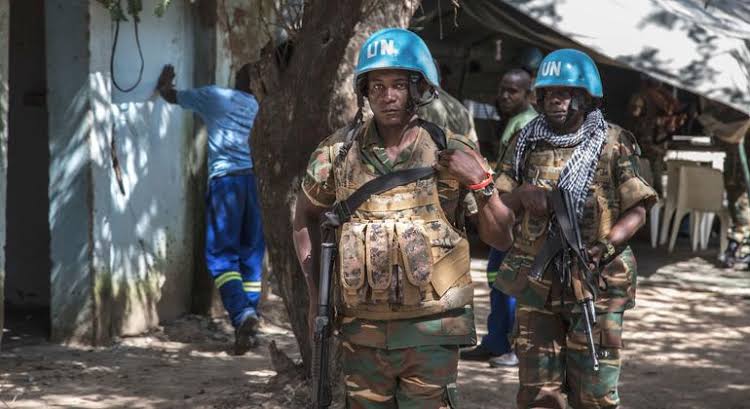Political parties and civil society organizations in the Central African Republic (C.A.R.) have expressed strong approval of the U.N. Security Council’s decision to extend the mandate of the Multidimensional Integrated Stabilization Mission (MINUSCA). The extension, which runs until November 15, 2025, aims to support the C.A.R. government and help secure peaceful elections in a country marred by years of conflict.
The mission’s ongoing presence is seen as crucial in providing the security needed for the upcoming rescheduled parliamentary and local elections, now set for April 6. Civil society groups have emphasized that MINUSCA’s troops will be instrumental in protecting civilians from rebel groups that have repeatedly disrupted political processes in the past.
Blandine Ikom, a spokesperson for C.A.R.’s Coalition of Civil Society Groups, expressed hope that MINUSCA’s continued involvement will ensure peaceful local and parliamentary elections in 2025, as well as a presidential vote scheduled for 2026. Ikom highlighted that these elections are pivotal for ending over a decade of political turmoil and for restoring governance and stability to the war-torn nation.
Despite the optimism, the path to peaceful elections remains uncertain. Originally slated for October, the elections have been delayed twice—first to December and then again to April 6. The government has warned that rebel factions and opposition groups are planning to disrupt the polls unless electoral laws and the 2023 constitution are revised. Opposition parties contend that the current electoral laws disproportionately benefit President Faustin-Archange Touadera’s party.
The U.N. Security Council’s decision to extend MINUSCA’s mandate is a critical step in securing the country’s future. The mandate includes provisions for protecting civilians, assisting government officials, and safeguarding territorial integrity, as well as supporting the peace process.
MINUSCA’s spokesperson, Florence Marchal, confirmed that the mission would focus on ensuring the smooth update of voter registration lists, a vital step for the upcoming elections. “The voter lists must be updated for local, presidential, and legislative elections. This is essential to ensure the integrity of the electoral process,” Marchal stated. “A key focus is to increase female representation on these lists, and we have launched a special project to ensure women are well-represented.”
MINUSCA aims to have at least 50% of eligible women registered to vote and is assisting individuals who lack birth certificates in obtaining the necessary documentation for registration.
In addition to supporting the voter registration process, MINUSCA is working closely with C.A.R. military and police forces to implement a comprehensive security plan to protect election officials, civilians, and materials during the April 6 elections and the 2026 presidential election.
General Zephirin Mamadou, the C.A.R. military chief of staff, praised the mandate extension as a diplomatic victory for President Touadera, underscoring that it would help maintain peace and safeguard civilians from rebels attempting to destabilize the country. Mamadou confirmed that C.A.R. forces are prepared to collaborate with U.N. peacekeepers to ensure a secure electoral process.
MINUSCA was established in 2014 in response to the C.A.R.’s deepening security and political crisis. Today, the mission comprises 14,400 troops, more than 3,000 police officers, and 108 corrections personnel.

